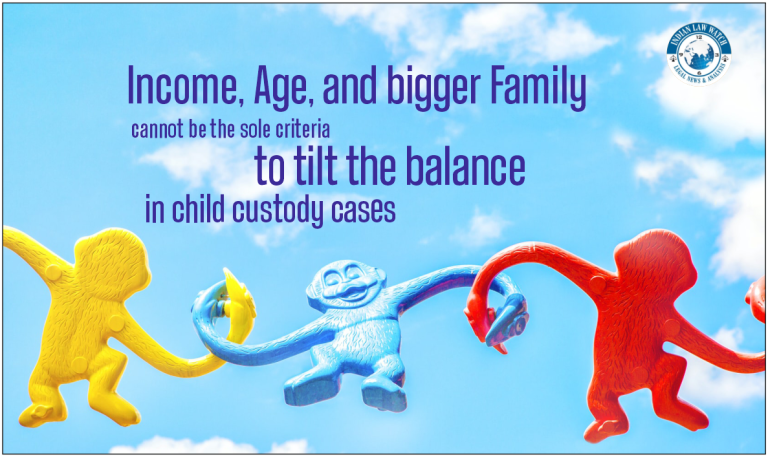

The Supreme Court ruled on Thursday that the mother has the authority to choose the child’s surname since she is the child’s natural guardian.
The Supreme Court on Thursday ruled that a mother who remarries after the death of her biological father can choose the surname of her child and include it in her new family.

The bench of Justices Dinesh Maheshwari and Krishna Murari overturned an Andhra Pradesh High Court decision ordering a mother to change her child’s surname and refer to her new husband in records as ‘stepfather.’

The court said that such a direction is almost cruel and mindless of how it would impact the mental health and self-esteem of the child.
“Name is important as a child derives his identity from it and a difference in name from his family would act as a constant reminder of the fact of adoption and expose the child to unnecessary questions, hindering a smooth, natural relationship between him and his parents,” the court said. “We, therefore, see nothing unusual in the appellant mother, upon remarriage, having given the child the surname of her husband or even giving the child for adoption to her husband,” it said.

The lawsuit revolves around a dispute over the child’s surname between the child’s deceased biological father’s grandparents and the mother, who remarried after losing her first husband.
The woman then petitioned the Andhra Pradesh High Court, which ordered that the child’s surname be restored and that the natural father’s name be shown whenever records permit, and his name be listed as the child’s stepfather if it is otherwise illegal.
The mother, feeling aggrieved by the decision, then approached the Supreme Court.

While ruling that the mother has an absolute right to decide the child’s surname after the death of her husband, the Supreme Court said, “A surname refers to the name a person shares with other members of that person’s family, distinguished from that person’s given name or names; a family name.”
“Surname is not only indicative of lineage and should not be understood just in the context of history, culture and lineage, but more importantly, the role it plays is with regard to social reality along with a sense of being for children in their particular environment. Homogeneity of surname emerges as a mode to create, sustain, and display family,” the court said.
The court also stated that during the pendency of the petition, the current husband adopted the child through a registered adoption deed and stated, “To obviate any uncertainty, it is reiterated that the mother, being the only natural guardian of the child, has the right to decide the surname of the child. She also has the right to give the child up for adoption.”
“The court may have the power to intervene but only when a specific prayer to that effect is made and such a prayer must be centred on the premise that the child’s interest is the primary consideration and it outweighs all other considerations. With the above observations, the directions of the high court so far as the surname of the child is concerned are set aside,” the court added.
Source : India Today





